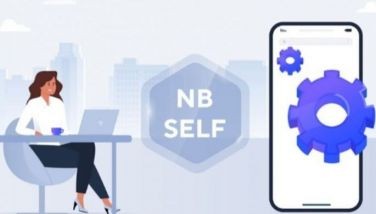The nostalgia machine
 In 2001 I came up with what I thought was a great idea for a Christmas gift: I would put together a compilation of Eighties music, burn the songs onto CDs, and give them to my friends. I had some CDs of music from that decade, the span of time in which I went to high school and college, and over the years I had been able to supplement my small collection of discs through occasional visits to music shops in malls and the odd tiangge stall. I had enough music for two CDs of 16 songs each, and I was sure my friends in my age group would appreciate the gesture.
In 2001 I came up with what I thought was a great idea for a Christmas gift: I would put together a compilation of Eighties music, burn the songs onto CDs, and give them to my friends. I had some CDs of music from that decade, the span of time in which I went to high school and college, and over the years I had been able to supplement my small collection of discs through occasional visits to music shops in malls and the odd tiangge stall. I had enough music for two CDs of 16 songs each, and I was sure my friends in my age group would appreciate the gesture.
The process turned out to be more tedious than I had thought it would be. After the excitement of choosing the songs came the drudgery. Because the songs came from different sources, they differed in quality and loudness. So I ripped them onto my hard drive, played them in my iTunes music player, and adjusted the sound level of each so that they matched. I ended up listening to each song several times. And as often happens when you listen to a song you like too often, the magic wears out. I no longer felt any thrill listening to Duran Duran’s Save a Prayer or the Psychedelic Furs’ Ghost in You or David Bowie’s Let’s Dance. The nostalgic pleasure I had found in finding the songs and then listening to them had dissipated. The irony of it: nothing robs an object of its mysterious power like its presence. If something is always there we take it for granted. Familiarity breeds domestication.
The years since then have done nothing to bring the feel-good nostalgia back. And, oh, how delicious nostalgia can be! Advances in Internet and computer technology have only made it easier to find the songs of one’s youth, and with them retrieve the memories of fonder days. With its immense capacity to store information and media (pictures, videos, music), the Internet is turning out to be, among other things, one massive nostalgia machine.
Students sometimes try to amuse me by sending me links to Eighties music videos on YouTube, and sure enough, seeing men in spandex and hair extenders or women with big hairdo’s and padded shoulders makes me chuckle. (Look, say, for Journey’s
The past now seems more accessible than ever before. Going to sites like Google and Wikipedia is only the start of a journey through a seemingly boundless supply of information on the past. For instance, after watching the movie 300 early this year, I went over to Wikipedia to find out what exactly happened during the Battle of Thermopylae and how the movie deviated from the historical record. Google pointed me to sites with photos, illustrations, maps and essays on that particular period in time. In the classroom, it’s the same thing. When I assign group reports to my students, their source of first and only resort is the Internet. Biographies of authors and their literary reputations, photos of them and their mistresses, covers of their important books, synopses of particular works, analyses of plot, character, theme, symbol — it’s all there on the Web. John Donne’s Holy Sonnets, for instance, are cut apart and analyzed, their “meaning” made easy to see. (And there is no need to wade through all that off-putting meter and rhyme and figuring out odd metaphors. No need to be perplexed over strange words and phrases like “sublunary love.”)
More and more sites on the
As a storage device of wonders, the Internet has one advantage over a physical bodega: the goods in its store won’t be ruined by too much moisture or dust or the gnawing teeth of rats. They remain in the same pristine state for as long as they’re uploaded.
So we have become adept at remembering. And this ability to remember feeds our nostalgia for and curiosity in the past. The past seems more accessible, nearer to us, than ever.
But for all the good the Internet is doing in allowing us to preserve the past and make it available to all, problems have cropped up.
One is that we have come to depend more and more on technological tools to remember things for us. Human memory is frail, after all, and we need to help it all we can to cope with our age’s deluge of data. Yet one result of this is complacency. We often don’t bother to store things in our brains. Why would you, when you can key it into your cellphone or laptop? (I tell my students I went to school in a simpler time when I only had to remember one landline number for each classmate; now everyone has a landline, a mobile phone number, an e-mail address or three, as well as virtual identities on chat and social-networking sites. No wonder they don’t even try to remember it all.)
That makes sense, except that our brains are getting less and less practice in the work of remembering. Memory is like a muscle, and the less exercise it gets, the more it atrophies. Often my first-year college students, who in their late teens are in the flush of youth, can’t remember things like the titles of books they’ve read (the names of authors are even tougher to recall). They have trouble remembering what plays they watched when they were in high school, which surprises me because their high school days are in their recent past. They groan when I make them memorize poems — I’m old school that way — because they find it difficult to do. It is difficult, and the less you rely on your memory the harder it becomes to begin to use it again. And using it again becomes all the more urgent. Knowledge, after all, begins with memory.
The second, perhaps more serious, problem is that our increased familiarity with the past domesticates it. Since it is so near to us, the past seems less mysterious, less able to fill us with awe. We think we have shrunk the distance between the past and us, and the journey of going back to it seems much less daunting.
This leads to the third problem: our easy grip on the past may make us believe that we understand it. How easy it is to delude ourselves into thinking that we have it in our grasp! In the movie The History Boys, the young hotshot teacher takes his wards on a field trip looking at monuments celebrating important events in English history. He explains to them that the conventional understanding of these events belies reality, yet celebrating these events only helps to propagate the widely accepted untruths. Then he says, “The best way to forget the past is to commemorate it.” The past is essentially strange, remote, obscure, and perhaps the surest sign that we don’t understand it is that we think we do.
Often we are nostalgic not for the past but for some version of it that gives us comfort. A friend summed up the Eighties on his blog thus: “Bad clothes, bad hair, great music.” Perhaps he had tired of all the bland hip-hop and diva R&B he kept hearing on the radio or on MTV and found the music of the Eighties refreshingly different.
As a survivor and relic of that era, I find all the attention given to that decade amusing. Was the music as good they say it was? Well, yes, but I also remember so much of it that was bad. And I wish I could forget it. But I can’t, and the culture I am immersed in won’t let me. The 1998 movie The Wedding Singer (starring Adam Sandler and Drew Barrymore) begins with opening titles accompanied by You Spin Me Round (Like a Record) by Dead Or Alive, a truly horrible song whose only appeal is camp. When I watched it I thought, how clever: the movie kicks things off with a song you’re embarrassed to admit you know. The movie knows you’d rather have forgotten the song, and it shoves it in your face and teases you for remembering. In a world that does an increasingly better job recording and preserving and remembering, in which forgetting becomes more and more difficult, there will more and more to be ashamed of.
Nostalgia, like memory, can be a trap (and a lovely one, too). I’ve been on nostalgia trips myself, and I think I’ve just about tripped out. I’ve got loads of songs from long ago, but I find that I’m not interested in listening to them these days. I look for things I haven’t been listening to. I go out seeking bands like the Johnny Alegre Affinity or the Brass Munkeys or Pinikpikan. I have no interest in retro bands.
I’d rather the past stay in my mind. As time goes by it becomes less distinct, the images getting fuzzy around the edges. Details lose their sharpness, the lens slowly gets foggy. Strange, but I’m fine with it. It’s the past, after all, and if you keep turning your head to look back at it, you turn away from the present, and certainly from the future.
* * *
Comments are welcome at dogberry.exie@gmail.com. Or visit my blog at http://dogberryexie.blogspot.com.



















